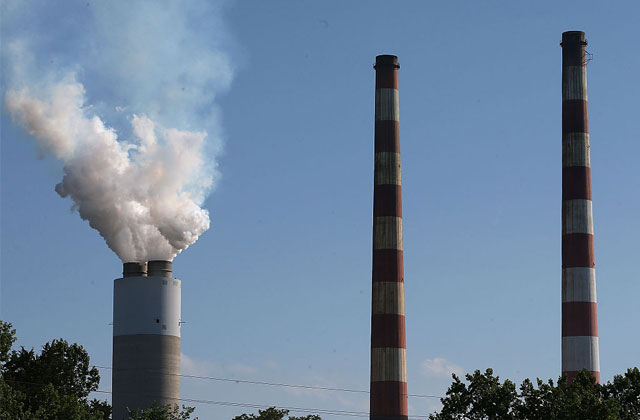In some parts of Indian country, President Donald Trump’s plans to revive the coal industry led to specks of hope.
Look to the Navajo Nation in the Southwest, the Crow Nation in Montana or the Osage Nation in Oklahoma. All of their economies are—or have been historically—embedded in the coal industry. And, as The New York Times points out, a return of coal would boost their financial outlook.
“A lot of people are not Trump fans here,” said Crow Chief Executive Paul Little Light, to the Times. “Very few. But we would be his best friends if he brought back coal.”
Interior Secretary Ryan Zinke has already established a relationship with the Crow during his time in the House. “A war on coal is a war on the Crow people,” he told the Times. “President Trump has promised to end the war.”
Still, as The New York Times reports highlights, the issue is not black and white: Though coal would improve the economies of particular Native American peoples, it contradicts any responsibility they may feel toward their land and environment.
The story lays out what the financial benefits look like for the Crow:
Here on the 2.3-million-acre Crow Indian Reservation in southern Montana, at least half of the tribe’s nonfederal budget comes from a single source: a vast single-pit mine at the edge of the reservation, called the Absaloka, which sends brown-black coal by rail to Minnesota’s largest power plant.
The Absaloka opened in 1974. It operates all day every day, employs about 170 people and has left a complex legacy. The work—shoveling coal dust, hauling through the night in trucks—is grueling.
But on the reservation, coal royalties, taxes and mine salaries have funded college educations, weddings and much-cherished homes with ponies corralled in the back. A coal payment every four months of about $225 to every tribal citizen puts food on tables, warm jackets on backs and gifts under Christmas trees.
Ms. Ten Bear Reed, the mother without running water, recently used her coal payout to buy a hot bath at a local motel. Normally, she sponge-cleans at home.
There’s also the Navajo and Hopi who are currently dealing with the stresses of a closing coal generating plant. Revenues from the plant and its partner mine, the Kayenta Mine, account for more than 80 percent of the Hopi Tribe’s general fund budget, according to the tribe.
Other tribes, however, have proven adamantly against any further fossil fuel development—even if it would help their impoverished communities. The Northern Cheyenne sit right next to the Crow, and they’ve been rejecting offers to mine their coal since the ’70s.
“We’d really be contradicting what our ancestors stood for, we’d be contradicting the reason why the Creator made us, and that was far more important to us than having a coal mine on our reservation,” tribal President L. Jace Killsback, to the Times.
Read the full story here.
